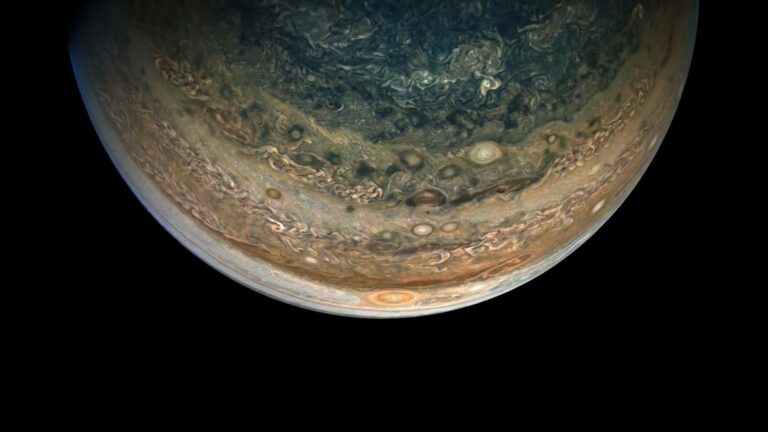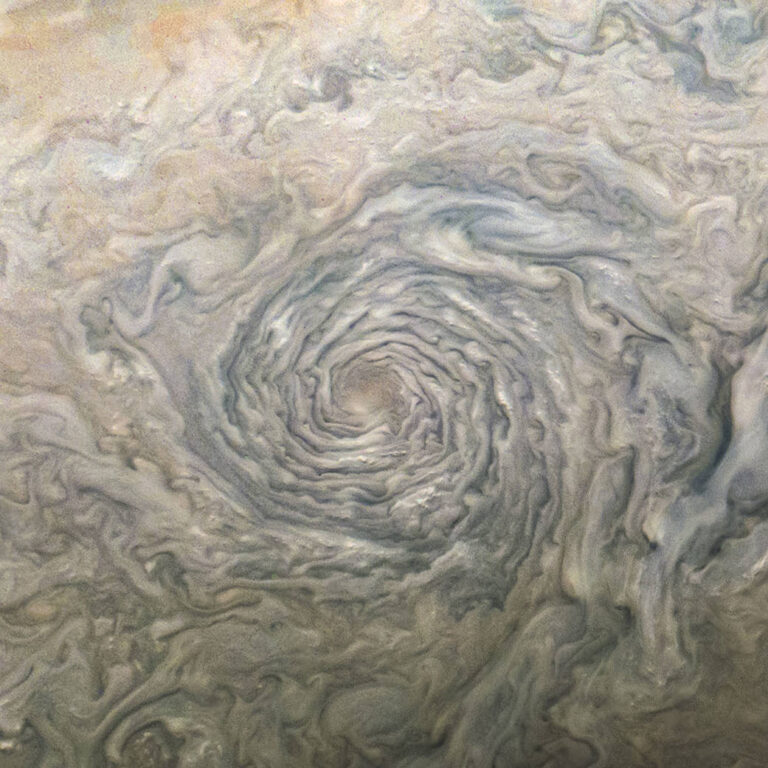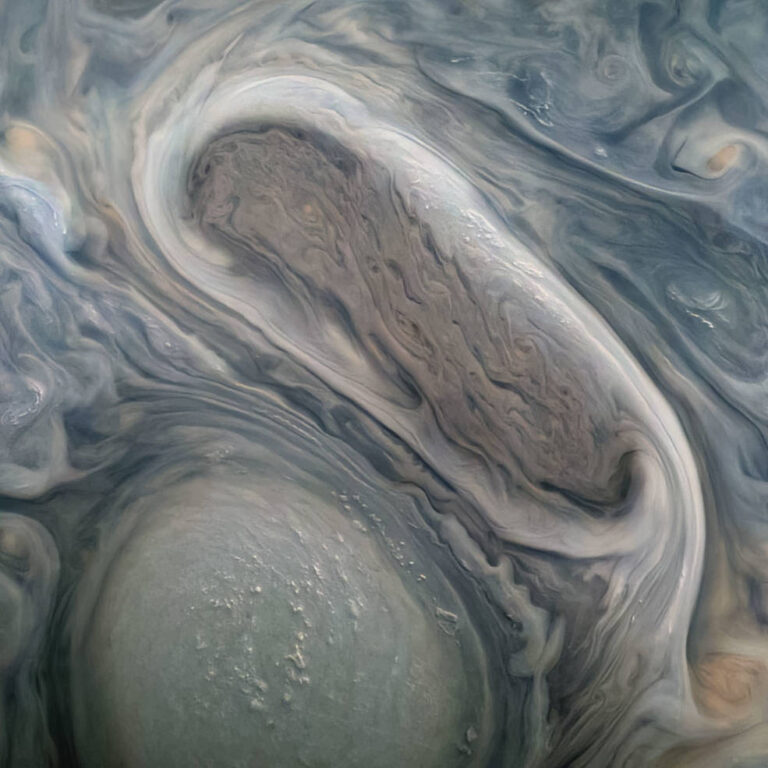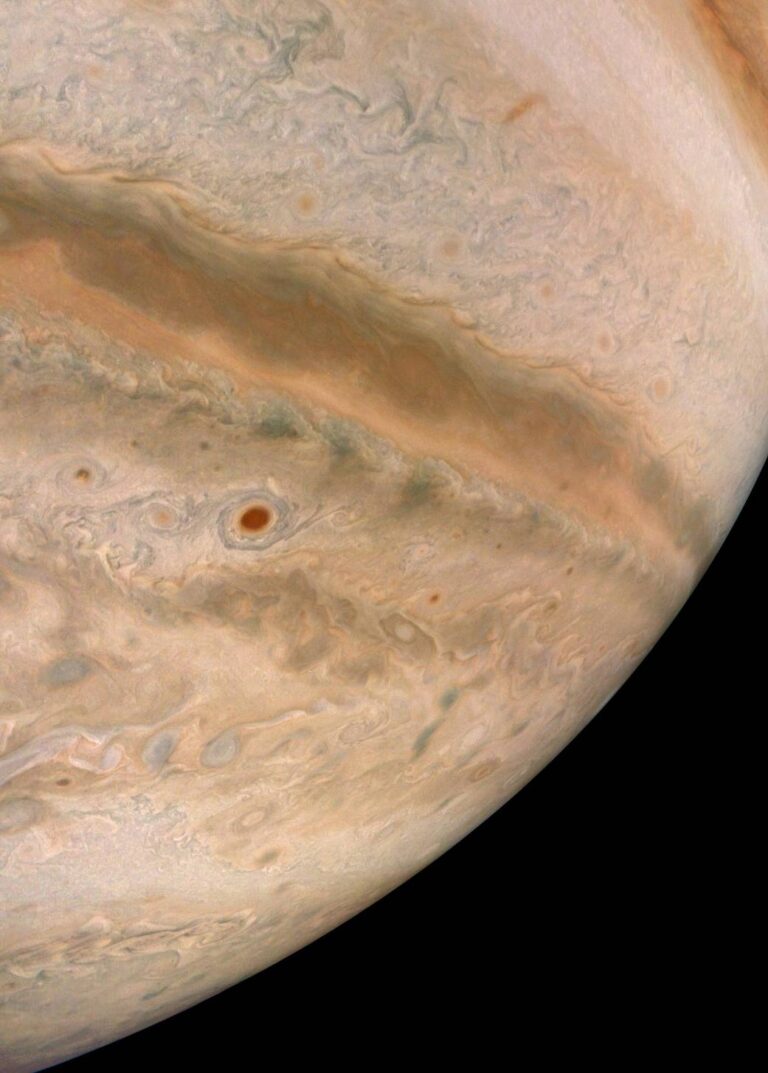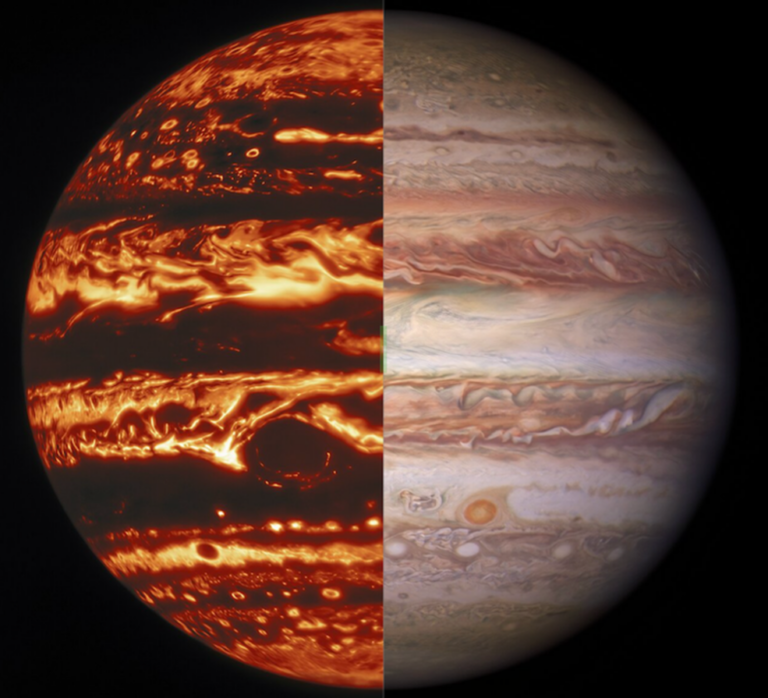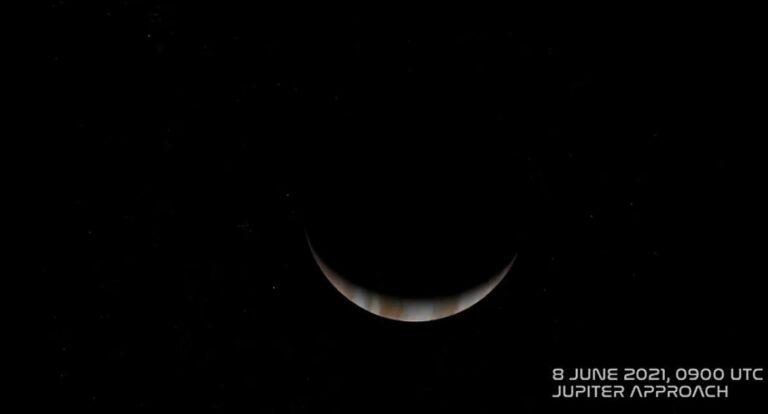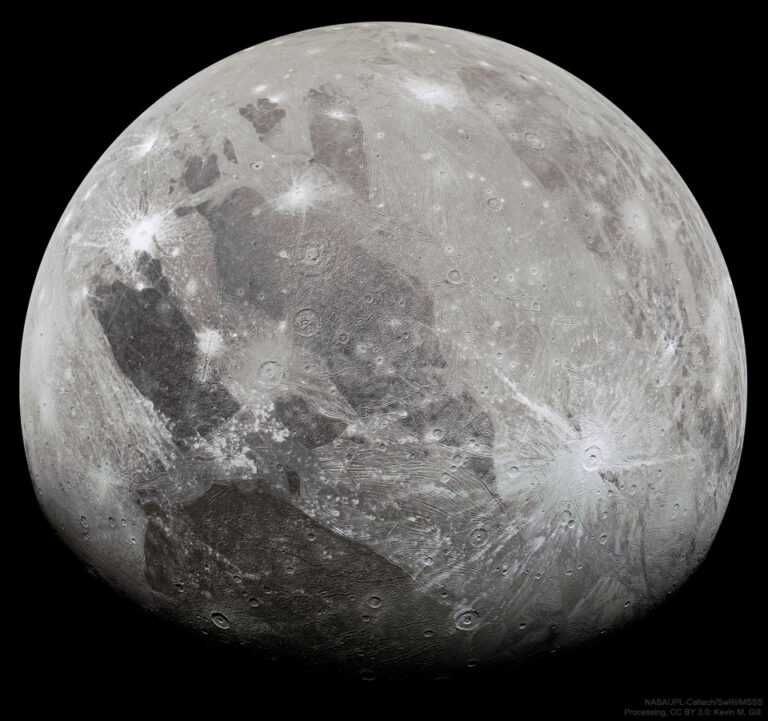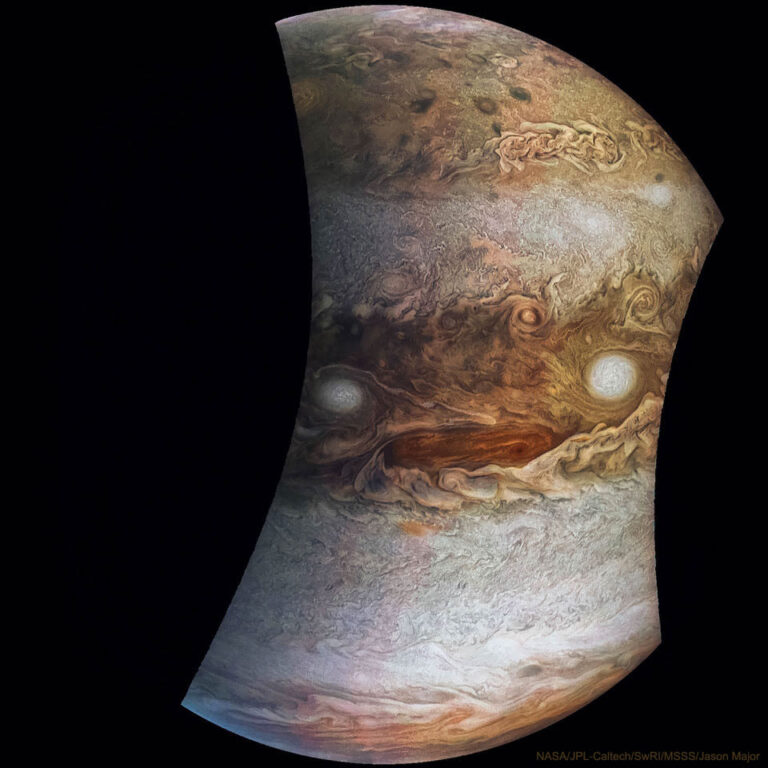近木轨道11:掠过木星
2022年8月28日 Perijove 11: Passing Jupiter Video Credit: License: NASA, Juno, SwRI, MSSS, Gerald Eichstadt; Music: Moonlight Sonata (Ludwig van Beethoven) Explanation: Here comes Jupiter! NASA’s robotic spacecraft Juno is continuing on its highly-elongated orbits around our Solar System’s largest planet. The featured video is from perijove 11 in early 2018, the eleventh time Juno has passed near Jupiter since it arrived in mid-2016. This time-lapse, color-enhanced movie covers about four hours and morphs between 36 JunoCam images. The video begins with Jupiter rising as Juno approaches from the north. As Juno reaches its closest view — from about 3,500 kilometers over Jupiter’s cloud tops — the spacecraft captures the great planet in tremendous detail. Juno passes light zones and dark belt of clouds that circle…

